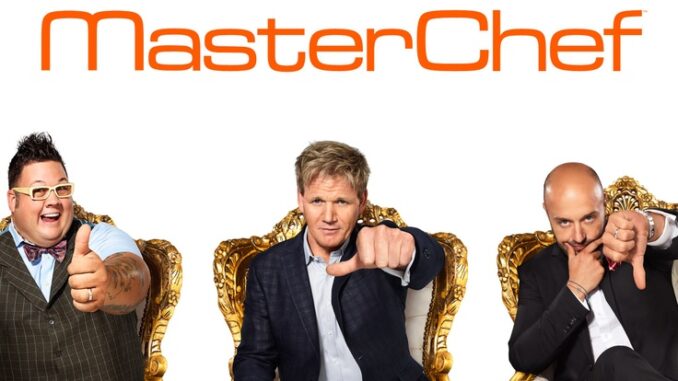
When most people think of Gordon Ramsay, they picture the fiery chef from Hell’s Kitchen, barking orders and demanding perfection under the hottest pressure. Yet on MasterChef and MasterChef Junior, a very different side of Ramsay emerges. He still commands authority, but here, between the heat of the stoves and the ticking clock, he becomes a mentor—someone who not only pushes contestants to their limits but also lifts them when they falter. In this arena, Ramsay is not just the fearsome perfectionist; he is also a guide, a coach, and sometimes even a father figure.
When MasterChef debuted in the U.S. in 2010, it opened the door for passionate home cooks to showcase their talent. Three years later, MasterChef Junior took the concept a step further by inviting children into the competitive kitchen. These shows expanded Ramsay’s audience dramatically. Parents who once viewed him as too intense began to see the man who could lean down to a 10-year-old, smile, and offer encouragement instead of criticism. For Ramsay, this wasn’t just a shift in tone—it was a strategic expansion of his brand, proving that he could balance intensity with warmth without losing his credibility as a world-class chef.
The competition format itself is a blend of creativity, skill, and adaptability. Contestants face Mystery Box challenges that spark spontaneous invention, Pressure Tests that demand flawless execution, and Team Challenges that test leadership under duress. Ramsay uses each moment to teach—sometimes by pushing hard for improvement, other times by recognizing potential and nurturing it. With adults, his feedback can be blunt, almost surgical, cutting right to the problem. But with children, the delivery changes. He crouches to their eye level, softens his voice, and transforms mistakes into learning opportunities. This adaptability is a quiet demonstration of his emotional intelligence, showing that mentorship is as much about knowing how to speak as it is about knowing what to teach.

Over the years, unforgettable contestants have passed through his kitchen. Christine Ha, the blind chef who won MasterChef Season 3, moved viewers with her resilience and her ability to translate sensory experience into stunning dishes. Dara Yu, who started as a runner-up in the very first season of MasterChef Junior, returned years later to claim the MasterChef title as an adult, showing the long-term impact of the experience. And then there’s Logan Guleff, the young prodigy who won MasterChef Junior Season 2, whose creativity far exceeded his age. These stories are proof that Ramsay’s mentorship doesn’t end when the cameras stop rolling—it plants seeds that can grow for years.
While the competition is fierce, some of the most memorable moments are those of genuine emotion. Ramsay has been seen consoling contestants after a crushing mistake, offering words of encouragement to rebuild their confidence, or celebrating a small victory with the same energy as a grand win. On MasterChef Junior, these moments are especially moving: a fallen cake becomes a chance to teach resilience, a risky flavor choice turns into a celebration of courage. Through it all, Ramsay shows that in the right environment, encouragement can be just as powerful as criticism.
The cultural impact of both shows is undeniable. They have inspired home cooks around the world to push beyond their comfort zones, try new techniques, and pay attention to presentation. MasterChef Junior has been especially influential for young audiences, proving that age is no barrier to pursuing a passion for cooking. The diversity among contestants—spanning backgrounds, cultures, and cooking styles—has also reinforced the idea that the culinary arts belong to everyone, not just those with formal training.
Behind the scenes, success depends on collaboration as much as it does on skill in the kitchen. Ramsay works alongside judges like Joe Bastianich, Aarón Sánchez, and Christina Tosi, blending their distinct personalities into a judging panel that is both dynamic and fair. Balancing genuine competition with television pacing requires careful orchestration, and Ramsay’s role as producer ensures the show maintains its integrity while delivering compelling entertainment.
